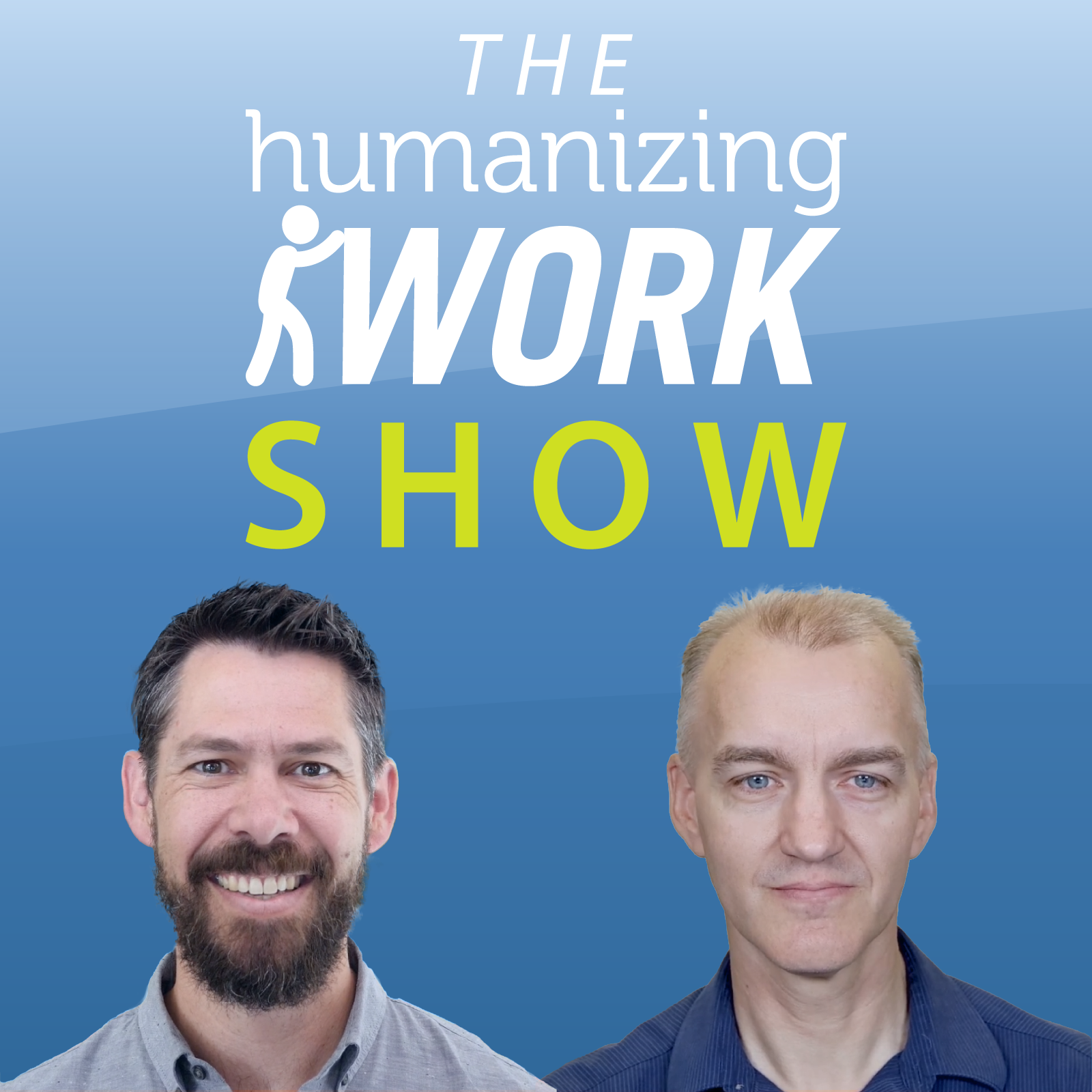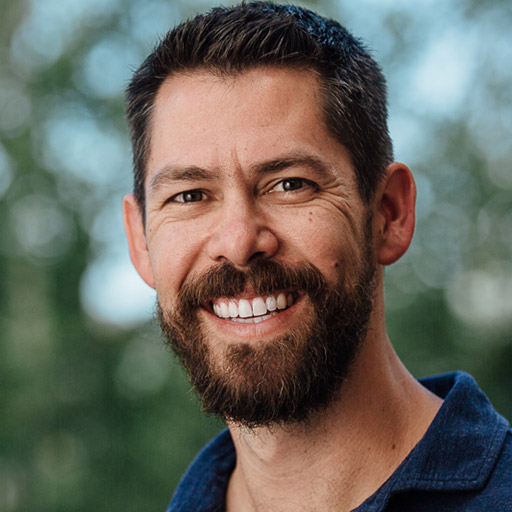Episode Transcript
Peter Green: Welcome to the Humanizing Work Show. I was recently working on a new logo for CAPED, which is our complexity aware planning, estimation, and delivery approach, as we prepare to launch some exciting new offerings related to that. Make sure you're subscribed to the newsletter to stay up to date on what we're doing with CAPED.
Good design, like good product, great teamwork, or really anything you want to get better at, is a result of lots of iteration. I could probably create a good enough logo in an hour, but I wanted a great one. The process to take that product from good to great was slow and painful, but it worked. We got a logo that we're really happy with.
That experience reminded me of the research on deliberate practice, what Malcolm Gladwell incorrectly summarized as the 10,000 hour rule. I know that this is a topic that Richard has studied extensively. So in today's episode, I'm going to ask Richard to summarize the research on deliberate practice, how that relates to our daily work, and how we can use the research on deliberate practice to take our work from good to great.
Richard, what did Gladwell get wrong?
Richard Lawrence: A lot. The concept of deliberate practice originally came from the research, Dr. Anders Ericcson. Ericcson studies how people get great at things. And the 10,000 hours idea is, something distorted from a study that Ericcson did on violin students. He was looking at what are the differences between really good conservatory level violin students, fairly good ones, and not so good ones.
And ironically, one of the things that didn't distinguish the top two groups in that study was how many hours they'd worked on violin up to that point. Both the expert group and the good group, by the time they were 20 years old, had about 10,000 hours on average. Gladwell said they all did. Turns out in the study, a lot of the expert ones only had about 5,000 hours, and some had quite a bit more.
So hours weren't the thing, it turned out. The thing was the quality of those hours. What were the students doing when they practiced? The not so good ones would pick up their violin and just play. The ones who really developed expertise were doing what Ericcson called deliberate practice, and here's how he defines deliberate practice:
"engagement with full concentration, in a training activity designed to improve a particular aspect of performance, with immediate feedback and opportunities for gradual refinement by repetition and problem solving."
So, fully concentrated on an activity, you're doing it to create improvement, so there's a prerequisite of having some kind of mildly stretchy performance goal that's motivating what you're doing. You do a thing, you get immediate feedback on whether you're doing it right, either according to some standard you can observe, or often with a coach or a teacher who can give you feedback on it, and then you have some built in iteration where you can figure out what wasn't quite right, you can make it right the next time.
You have to have motivation to be better, because practice is uncomfortable. It's different from just playing your instrument or doing design, or whatever it is that you're trying to get better at. It's deliberately focused on improvement. And high performers build systems around this, like engaging a coach, like scheduling time for it, like mixing different kinds of activities.
Like when I practice guitar or drums, I deliberately have time dedicated to the painful, deliberate practice as well as time dedicated to play. Like, I'm just gonna go through, working on songs, i'm just going to play freely and have a good time, and remember why I like playing instruments. It doesn't have to all be the painful stuff, but you have to have systems around the hard practice.
So I'm curious, Peter, when you were working on the logo, you weren't doing deliberate practice for graphic design, but there was something about it that evoked deliberate practice for you. Tell us about that.
Peter: Yeah. It reminded me a little bit about the many years I've spent practicing to become a professional trumpet player. Which is: I had a goal, I made an attempt, I got feedback, and then I made an improved attempt. That iterative practice of trying something, getting feedback, trying again, and it getting better over time.
And then the thing that really stood out to me was the pain involved in that process that reminded me of deliberate practice on the trumpet.
Richard: What was painful about it?
Peter: A part of it is, it just takes a lot longer than you expect. I think when you're iterating on something, you hope that out of the box you're gonna have this "ah♫♫♫" moment, where the design just descends from on high, and you say, "I have created it!" And everybody looks at it and says, "that's the most brilliant thing I've ever seen."
And the reality of all good product and all good design is, that just never happens. Great products are always a result of iteration, but it takes longer than you expect, I think. I think we had 24 different iterations of that logo before we landed on one where. We all said, yep, that's the one.
Richard: Mm-hmm.
Peter: So that was part of it, part of that was we did a set based concurrent design. We had like three divergent examples that we started with. One of them I jokingly said, I think we might be trying to sell green tea with this logo right now. That's not working very well. Another one that I sort of liked because it was simple, you said something like that looks like something I designed in 2000.
And for me I was like, oh, that hurts my ego a little bit. 'cause I liked it a little bit and I had to get present with the fact that you weren't being critical of me.
Richard: I literally designed a logo for a transportation company that had that same shape to it in 2002. As Sherlock would say, "I wasn't insulting you, I was describing you."
Peter: Right. So anytime we make a thing, if we have a little bit of ego attached to it, like "I hope this is good," you want people to like the thing you made. And I had to be present enough to say, "Richard's not criticizing me. He's making a comment on this work product."
And then I think the other thing that was a little bit painful is, in our little company of three people, sometimes we don't define clear decision making authority. Like who owns the final decision on the logo? And so by default in the Jurgen Appelo Seven Levels of Delegation, we're at a four. And so part of it was just the pain of not having a clear decision maker and needing to get to full consensus. Now, I think in this case it led to a good result, but that probably could have been clearer.
So that's what evoked it, is that feeling of frustrating iteration, but eventually getting better at it.
But designing a logo is not exactly the same as getting better at an instrument or other things where we might have deliberate practice.
One of the big differences for me is, the motivation is different when I'm practicing the trumpet. My goal is almost wholly related to getting better, what Dan Pink summarized as mastery. I wanna be good at something and I wanna be getting better at it over time.
My goal with designing the logo was not to get better at logo design. The goal of designing the logo was to have a great outcome, and that's much closer to what Dan Pink described as the purpose motivator.
So with mastery, purpose, and autonomy, they sort of diverge a little bit. When you're building something, when you're doing product development, when you're trying to improve a team, versus deliberate practice on an instrument or a sport, or what we normally think of in the research that Ericsson's done.
Richard: I think there's also a very relevant difference for our listeners in the structure of the thing. What Ericcson is often talking about, and what we've experienced as musicians is deliberate practice, distinct from performance. So you put in your practice time, then you perform. And what most of us are doing most of the time is actually more like what you were doing with the logo is doing the work for some outcome you're trying to create, but doing it in such a way, ideally, that you get a bit of improvement as you do it.
So let's talk about that for a minute. If we wanna build improvement into our work, because most of us are probably not setting aside large chunks of time for deliberate practice on core work skills, but we would like to get better at our work.
It's worth noting that the necessary conditions for deliberate practice for Ericsson's research are mostly missing in our current work contexts.
Peter: One thing that immediately stands out to me is that idea of intrinsic motivation. Like why are we willing to go through the discomfort of iterating, getting feedback, taking the time to do that, if we don't have a clear intrinsic motivation to do it.
For me, the motivation to get a great outcome with that logo was really strong, so I was willing to do it. I also wanted to get better at graphic design, so the mastery part of it was important to me. So I think that's a key thing that's often missing in people's work is, do we understand why we're doing it, and do we feel like we're getting better, or being able to demonstrate mastery through doing it.
Another one is that when we are deliberately practicing, we are setting those small stretch goals, what the research on flow describes as 4% stretch: It's not so hard that it's stress inducing, but it's hard enough that we have to really focus in order to get it done.
And a lot of the work that we do is often reactive and urgent. It's not goal driven. It's "Ah, I gotta get this thing done, or I'm almost outta time on this, so I better just do something and get it good enough!" If we're gonna take a deliberate practice approach to our work, it needs to be outcome oriented. It needs to be, "what's the goal and why does that goal matter to me?" so that we're willing to get through that discomfort. So we have to have goals.
Richard: I think there's also something on that one about slicing the work, and having enough space in the work, so that you actually could take on an improvement goal while doing the work, versus "I just have to get it done no matter what." There's not gonna be space for that, even mild stretch.
There are also, I think, three parts of the definition of deliberate practice that are glaringly absent from our current work context, like engagement with full concentration. You can only get better if you're actually concentrating on it.
So again, a music example, if you're mindlessly playing scales, you're probably not getting better. You actually have to be concentrating on something like how clean are my notes going from one to another?
So in our work, how often are we engaged with full concentration and awareness of the thing that we're doing? Like basically never. Constantly distracted with email, going from one meeting to another. Things get a little bit hard and you pop over to social media to reduce that pain of having to concentrate on something.
Very rare to have engagement with full concentration, and we'd have to deliberately make space for that in order to build improvement in second short cycles with immediate feedback, like, do a thing, see how it went. And in most people's work context, they're taking on these large, multi-day or multi-week chunks of work in between getting feedback. So you have these long feedback cycles and there's rarely systems or people who can give you good quality, quick feedback and coaching about what's going on.
And then the third thing I see that is inherent to deliberate practice, and missing from a lot of our work contexts, is gradual refinement by repetition and problem solving. Like, try a thing, see how it went, try it again. Most work environments are like, "do a thing, I'm glad that's behind me. Move on to the next thing." And there's rarely iteration.
Now I'm not saying you should do this logo all over again next week and see if we can get it 5% better.
Peter: Mm-hmm.
Richard: But it may be worth thinking about the next time you do some kind of graphic element, how do we treat it as the next step in the thing that you did last time, and build in feedback and a little bit of stretch to it, might be more effective over time if you do that.
Peter: Right. Underlying all of these things, there's this human aspect, I think. Work is hard enough as it is, and the willingness to go through the discomfort of deliberate practice is, is hard to come by. Our ego is attached to doing good work. We want people to like it. So it's hard to put ourselves out there and ask for feedback. It takes energy to stay focused and systems, as you mentioned, to maintain that flow state and. Sometimes we don't feel the safety required to go out and ask for feedback. So I think just from a psychological standpoint, it can be really difficult. I think human relationships have to be in place in order to do this really well.
It's not just a system issue. I think it's also a a relationship issue.
When researchers studied doctors, they found that those with the most experience, say 20 years or more, perform no better, and sometimes worse, than those with five years of experience. And I think this highlights something about deliberate practice once we're in our career, which is that work isn't structured to build deliberate practice in, and it's uncomfortable to do so.
Most of us get to a good enough state and then we stay there. That's good, but what if we want to be great? Our invitation this week is to pick some improvement goal that you could work on in the course of your work. Write it down and then ask someone for feedback on that work. As you do it this week, make it something motivating, something that will see you through the inherent pain of deliberate practice.
Getting a strong brand for CAPED was worth the pain for me, and I got a little bit better at logo design in the process. So find something like that. And invite others to give you feedback on it.
Richard: If you're listening to our show at the team level, you probably already use agile techniques like retrospectives and reviews, and that should provide good scaffolding for the kind of improvement we've discussed today.
If you're not seeing results, it's worth looking at those conditions we talked about to see what to fix. Deliberate practice suggests that we pick a single small thing and improve that. So you can do this as a team too. Pick some condition in your environment that's getting in the way of your ability to improve and work on improving that this week.
And as I mentioned earlier, deliberate practice almost always involves a coach or teacher. If you're getting to the expert level, that person can help you set goals, structure your practice, incorporate high quality feedback. That's a thing we do for our clients. If you want to learn more, visit humanizing work.com and schedule a call with me or Peter to discuss your goals and see how we can support you in going from good to great.
Peter: And if you enjoyed this episode and you want to support the show, the best thing you can do if you're watching on YouTube is subscribe, like the episode and click the bell icon to get notified of new episodes. Drop us a comment on what you're going to try this week to get better at your work. If you're listening on the podcast, a five star review makes a huge difference in whether other people who'd benefit from the show find it or not.
Thanks for tuning into this episode, and we'll see you next time.




